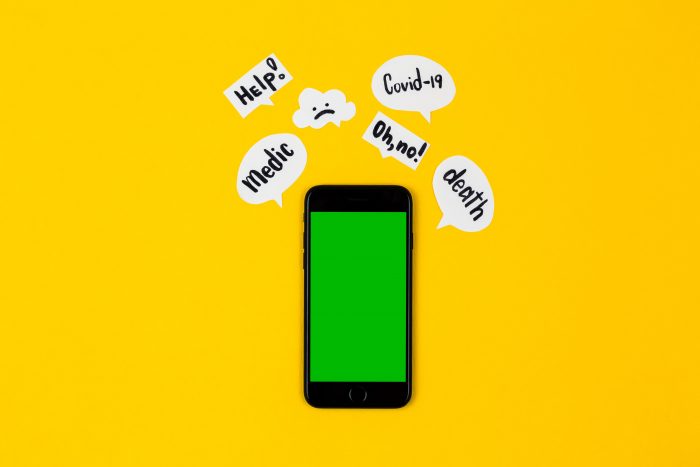The coronavirus pandemic, self-isolation and lockdown has left so many of us feeling anxious, panicked, chaotic, overwhelmed, helpless and powerless.
Why wouldn’t it though?
There is an overload of information from all angles, often too much for us to process. Some of this information and guidance is conflicted, giving us mixed messages on what we should or shouldn’t be doing. We don’t have enough information about the virus itself and how it affects individuals – one day we are told that those who have underlying health conditions are at risk and then the next day we are hearing that a healthy person, with no underlying health conditions has passed away. Furthermore, once we notice any related symptoms, except for self-isolating, what else is there we could or should be doing? Are we meant to take medication or not? Should we take something for this persistent cough that has been highlighted as one of the main symptoms of the virus?
Who knows?!?
With this much inconsistency, uncertainty and lack of coherent information, it is no wonder that we are feeling emotionally challenged, distressed and unsettled. During this turbulent time, there are some helpful strategies that can help us stay calm and in control.
- Acceptance
Anxiety, anger, panic, chaos, confusion, shock and feeling ‘out of control’ are all natural and normal reactions to an abnormal situation such as this pandemic. It is important to remember that we are not alone in how we feel and that others are feeling the same too. It is nothing to feel embarrassed, ashamed or silly about. By suppressing our feelings, we are going into denial or avoidance which will only prevent us from addressing the difficulties that we are experiencing. Instead talk to family, friends or work colleagues about how you are feeling. Share your feelings, worries and concerns about the current situation. There is a strong chance that the other person is feeling exactly the same as you, which is not only reassuring for us but also for the other person as they realise their feelings are shared.
- Manage Your Media Diet
During a crisis, it is natural human instinct to want to find out more about the situation so we can plan, prepare and be proactive. We therefore tune into the news, apps, social media, YouTube, radio or any other sources of information that might be accessible to us. The problem however is that the brain can only process certain amounts of information before it begins to feel overwhelmed, overloaded and consumed by it all. As tempting as it might be to constantly watch the TV, check our phones and research information, it is not beneficial to our emotional health. Absorbing the same recycled information, makes us re-live a negative experience and reinforces any anxieties related to it. So be selective and measured about your media diet by picking a reliable source of information(s) and tune into the source once a day. Eliminate all other streams of information by turning off the TV, switching off / muting phone notifications, not engaging in texting, deleting apps and maybe even asking family and friends that you don’t want any covid-19 related information, texts or messages sent to you.
This doesn’t need to be a permanent arrangement but even taking a break for a small period of time will alleviate any feelings of stress, anxiety or panic.
- Expand Your Knowledge Base
Understandably, there will be times when we will need to tap into the knowledge, information and resources out there to find out more about the current crisis. When doing so, it is important to remember, that expanding our knowledge base can help us gain a more balanced, healthier and accurate depiction of reality. Don’t limit your source to just the News, social media or YouTube. There are health organisations, health websites or leading global health organisations that present statistics, facts and information that could be helpful and effective in putting our mind at ease.
- Be Proactive Rather Than Reactive
During this pandemic we aren’t in control of our ‘Outer World’. This consists of the virus, the spread of it, the outbreak, how long it will last, self-isolation, lockdown, rules of social distancing or the actions of others. Knowing this can generate feelings of anxiety, panic, stress, powerlessness, helplessness and in some cases even anger. The more we focus on it, the more we become aware of how little we are in control and the worse we will feel. The solution to this is to focus on your ‘Inner World’ because herein lies the things that you CAN control. The ‘Inner World’ consists of turning off the news, limiting social media, adopting a positive attitude, ensuring our own social distancing, finding fun things to do at home, doing enjoyable activities, eating well, exercising, watching TV that makes us feel good or catching up on tasks that we might have not had the chance to do before.
- Exercise
When we are stressed, our body produces adrenaline and cortisol which can contribute to emotional distress, irrational thinking and anxiety. Physical exercise will help us to release adrenaline and stress hormones from our body enabling us to feel calmer, relaxed and at ease. By taking a walk daily or by doing a workout at home you can restore your balance, energy levels and zen.
Stay calm. Stay well. Stay healthy.
To receive notifications about my regular videos on coping with the coronavirus pandemic, you can follow me on FaceBook by clicking the “Like” button.
Photo by Volodymyr Hryshchenko on Unsplash











Read 0 comments and reply